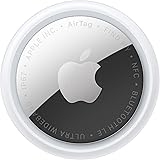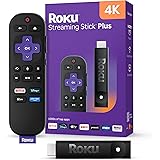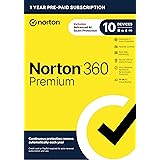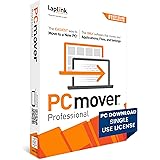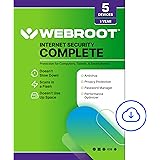Are you overwhelmed by your finances? Do you want to take control and find stability and security? If yes, this Personal Finance for Beginners guide is for you. We’ll explore key personal finance topics. You’ll learn about budgeting, saving strategies, managing debt, and investing.
Getting your finances in shape is vital, even if you’re just starting. This guide will help you with budgeting basics, debt management, saving strategies, improving credit scores, and investment basics. By mastering these, you can build a strong financial future. You’ll gain stability and security.
Key Takeaways
- Establish a solid foundation in budgeting by tracking your income and expenses.
- Implement effective debt management strategies, such as paying more than the minimum due and prioritizing high-interest debts.
- Develop saving strategies, including automating your savings and building an emergency fund.
- Understand the importance of credit score improvement and maintaining good credit health.
- Learn the fundamentals of investing, including retirement planning and tax-deferred growth opportunities.
Are you starting your financial journey? Or looking to boost your financial skills in 2024 and beyond? Financial literacy is key. This guide has got your back. Let’s begin your journey to financial fitness!

Understanding Budgeting Basics
Starting with a good budget is key to being financially fit. Budgeting means keeping track of what you earn and spend. It helps you see where you spend too much and where to put more money towards your goals. Budgeting for beginners can be overwhelming at first, but with a little guidance, anyone can master the basics. The first step is to understand your current financial situation. Take some time to gather all your financial documents and list your income and expenses. This will give you a clear picture of where your money is going and where you may need to make adjustments.
Once you have a clear understanding of your financial situation, it’s time to create a budget. Start by categorizing your expenses into different categories such as housing, transportation, groceries, and entertainment. Allocate a specific amount of money for each category based on your income and priorities.
Getting out of debt is another important aspect of budgeting. Start by listing out all your debts, including credit cards, student loans, and any other outstanding loans. Determine how much you owe and the interest rates associated with each debt. Then, create a plan to pay off your debts systematically, starting with the ones with the highest interest rates.
Lastly, it’s crucial to develop a healthy money mindset. Understand that budgeting is not about restricting yourself, but rather about gaining control over your finances. Embrace the idea that by budgeting and making conscious choices, you are setting yourself up for financial success in the long run. With consistency and discipline, budgeting can help you achieve your financial goals and live a more fulfilling life.
Track Your Income and Expenses
It’s smart to watch what you make and how much you spend for a month or more. This shows your must-pay bills like rent and car payments. It also shows how much you spend on things like food and fun.
Tracking your income and expenses is one of the tax essentials that everyone should be aware of. By keeping a close eye on your finances, you can make more informed decisions about your spending and savings. This not only helps you stay on top of your bills and payments but also allows you to have a clearer picture of your financial health.
Moreover, tracking your income and expenses is crucial when it comes to saving money. By understanding where your money is going, you can identify areas where you can cut back and save more. It’s astonishing how even small daily expenses can add up over time. By diligently tracking your expenses, you can identify these patterns and make necessary adjustments to save money.
In addition, tracking your income and expenses is an excellent way to get out of debt. By having a clear understanding of your financial situation, you can create a realistic budget and set goals for reducing your debt. It allows you to allocate your resources efficiently and prioritize your debt payments, ultimately helping you work towards a debt-free future.
Overall, tracking your income and expenses is an essential financial habit. It provides you with valuable insights into your spending habits, helps you save money, and assists in creating a roadmap to get out of debt. So, whether you use a budgeting app, spreadsheet, or pen and paper, make sure to start tracking your income and expenses today to pave the way for better financial well-being.
Set Realistic Financial Goals
Knowing your money in detail, you can set real money goals. You might aim to save at least $500 for emergencies. Or, you could save 15% of what you make for when you stop working.
Lessening debts that cost you a lot and saving automatically are also smart moves.
Setting realistic financial goals is essential for securing your financial future. Whether you want to save for emergencies, build a retirement fund, or get out of debt, it’s important to have a clear plan in place. To start, aim to save at least $500 for emergencies. Having a financial buffer can provide peace of mind during unexpected situations. Alternatively, you could save 15% of what you make for when you stop working, ensuring a comfortable retirement.
In addition to saving money tips, reducing your debts should be a priority. Identify high-interest debts that are costing you a significant amount in interest payments. Focus on paying off these debts first, as it will save you money in the long run. Implement strategies such as prioritizing one debt at a time, making extra payments whenever possible, or considering debt consolidation.
Another effective strategy is automating your savings. Set up automatic transfers from your paycheck to a savings account or a retirement fund. By doing this, you eliminate the temptation to spend that money elsewhere and make saving a habit. Start with small, achievable amounts and gradually increase as your financial situation improves.
Remember, setting realistic financial goals takes time and effort. Be patient with yourself and celebrate the milestones along the way. With proper planning, saving, and reducing debt, you can achieve financial stability and pave the way for a brighter future.
Review Your Budget Regularly
It’s vital to check and tweak your budget often. Use apps, spreadsheets, or a notebook to keep track and make changes. Envelopes for your cash needs can make spending easier to manage.
Using these budgeting tips can help you control your money better. It’s a step-by-step journey, but it brings big rewards in the end.
Mastering Debt Management
Debt can really hold you back, but there are ways to tackle it. Start by paying more than the minimum on what you owe. Put more money toward debts with the highest interest first. This way, you clear your debt faster and cut interest costs. Moving high-interest credit card debt to a cheaper card is also smart. It lessens your interest payments and speeds up paying off the balance.
Mastering debt management is a crucial skill in today’s financial landscape. Many individuals find themselves burdened by overwhelming debt, making it difficult to achieve financial stability and meet their goals. However, with the right strategies and mindset, it is possible to get out of debt and regain control of your finances.
The first step in debt management is to create a comprehensive budget. This involves tracking your income and expenses to understand where your money is going. By identifying areas where you can reduce spending, you can free up extra funds to put towards paying off your debt.
Additionally, it is essential to prioritize your debts and create a repayment plan. Start by paying off your high-interest debts first, as they accumulate the most interest over time. Consider consolidating your debts into one lower-interest loan, which can simplify your payments and potentially reduce your interest costs. Another effective strategy is to negotiate with your creditors for lower interest rates or payment plans that are more manageable for your financial situation.
Finally, adopting smart financial habits can help you stay on track and avoid falling back into debt. This includes avoiding unnecessary expenses, building an emergency fund, and seeking professional help when needed. Remember, mastering debt management is a journey that requires discipline and dedication, but with the right strategies and commitment, you can achieve financial freedom and pave the way for a secure future.
Pay More Than the Minimum Due
Never just settle for the minimum payment. The debt snowball method is about this. It lets you clear debts quicker and save on interest. Paying only the minimum due on your debts may seem like the easier option, but it can keep you trapped in a cycle of debt for longer than necessary. If you want to become debt-free and improve your financial situation, it’s important to pay more than the minimum due.
One effective strategy to accelerate your debt payoff is the debt snowball method. This approach involves making extra payments on one debt while paying the minimum on others. Once the first debt is paid off, you roll the amount you were paying on that debt into the next one. This method allows you to create momentum and build motivation as you see your debts shrinking one by one.
By paying more than the minimum due, you can significantly reduce the interest you pay over time. This means more of your money will go directly towards reducing your debt rather than lining the pockets of your lenders. It’s important to prioritize which debts to pay off first, such as those with the highest interest rates, to maximize your savings and get out of debt sooner.
Getting out of debt requires commitment and financial discipline. By paying more than the minimum due, you’ll not only clear your debts quicker but also gain the freedom and peace of mind that comes with being financially secure. So take control of your financial future, say goodbye to minimum payments, and work towards a debt-free life.
Prioritize High-Interest Debts
It’s key to start with debts that have the highest interest. Tackling these first means saving more money. Use the debt avalanche method to focus on your most expensive debt. This can lower your total debt faster.
When it comes to managing debts, it’s important to prioritize high-interest debts. These are the ones that eat away at your budget the most and keep you stuck in a never-ending cycle of payments. By tackling these debts first, you can save more money in the long run.
One effective method to prioritize high-interest debts is the debt avalanche method. This approach involves focusing on your most expensive debt and paying it off aggressively while making minimum payments on your other debts. By doing so, you not only reduce the total interest you’ll pay over time but also decrease the overall duration of your debt repayment journey.
Getting out of debt is never an easy task, but by prioritizing high-interest debts, you can expedite the process and free up more financial resources. So take some time to evaluate your debts, identify the highest interest ones, and start paying them down strategically. Your future self will thank you for it.
Consider Balance Transfers
With high-interest credit card debt, a balance transfer to a lower-rate card is a good move. It trims your interest costs and speeds up your payments. Just be careful about the transfer fees and check the new card’s details.
If you find yourself drowning in debt, a balance transfer to a lower-rate card is a good move. It not only helps to reduce your interest costs, but it also speeds up your payments. By transferring your balance to a card with a lower interest rate, you can save money and pay off your debt more quickly. However, it’s important to be cautious of any transfer fees that may be associated with the process. Make sure to thoroughly review the details of the new card before making a decision.
Getting out of debt requires careful planning and strategic decision-making. Consider exploring balance transfers as part of your debt management strategy. Look for credit cards that offer a 0% introductory APR on balance transfers for a certain period of time. This can provide you with some relief from high interest rates and allow you to focus on paying down your debt. Just keep in mind that once the introductory period ends, the APR may increase, so it’s essential to have a plan in place for paying off your balance before that happens.
Before opting for a balance transfer, it’s crucial to assess your financial situation. Take the time to calculate how much you owe and determine if a balance transfer is the right solution for you. Consider the transfer fees, annual fees, and the interest rate on the new card. Compare these factors with your current situation to make an informed decision. Additionally, avoid using the new card for any additional purchases as it may add to your debt and make it more challenging to get out of. Remember, a balance transfer can be a useful tool to help you get back on track financially, but it should be used wisely and complemented by a comprehensive plan to tackle your debt.

Personal Finance for Beginners: Saving Strategies
Saving 15% of your income for retirement is key. This should be once you’ve cleared your debts. It’s also critical to have an emergency fund. It should cover 3-6 months of living expenses if you lose your job.
Make saving easy by setting up direct deposit into a savings account. For retirement, open a 401(k) or a Roth IRA. In 2023, you can contribute up to $6,500 to a Roth IRA. After you turn 50, this limit rises to $7,500. Many employers also match your 401(k) contributions.
Personal finance can be overwhelming, especially when you’re just starting. But with the right saving strategies, you can set yourself up for a secure financial future. One of the first steps is to create a budget and stick to it. This will help you track your expenses and identify areas where you can cut back.
Another important aspect of personal finance is getting out of debt. Start by paying off high-interest debts like credit cards. Consider transferring balances to a card with a lower interest rate or consolidating your debts into a single loan. Creating a repayment plan and sticking to it will help you become debt-free sooner.
To secure your future, it’s crucial to start saving for retirement as early as possible. If your employer offers a 401(k) plan, take advantage of it. Contribute as much as you can, especially if your employer matches your contributions. Furthermore, consider opening a Roth IRA, which allows you to contribute a certain amount each year and offers tax advantages in retirement.
In conclusion, personal finance can be challenging, but with the right strategies, you can achieve financial stability. By creating a budget, prioritizing debt repayment, and saving for retirement, you are taking important steps toward a secure future. Remember, it’s never too early to start building good financial habits and planning for the long term.
Having good credit matters too. Pay your bills on time and lower your debt to improve your credit score. A better score means you can get better rewards from credit cards and pay less interest. Most people feel happier and more confident when their money is in order.
FAQ
What are the essential topics covered in this personal finance guide for beginners?
How can I establish a solid budgeting foundation?
What strategies can I use to manage and pay off debt?
How can I develop effective saving strategies?
What steps can I take to improve my credit score?
How do I start investing and planning for retirement?
Source Links
- https://www.nerdwallet.com/article/finance/how-to-budget
- https://www.homelendingpal.com/es/10-proven-strategies-for-mastering-debt-management-and-achieving-financial-freedom
- https://www.sofi.com/learn/content/personal-finance-basics/
- https://www.cnbc.com/guide/personal-finance-101-the-complete-guide-to-managing-your-money/


